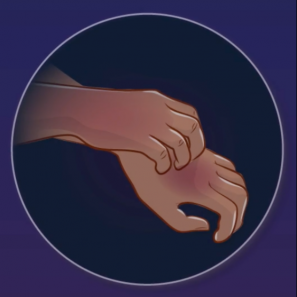Gastrointestinal issues
TCM (Traditional Chinese Medicine)’s focus on restoring balance shows unique value in symptom management, functional recovery, and relapse prevention. Integrating TCM with modern diagnostics (e.g., endoscopy) and Western treatments offers a synergistic strategy for optimal outcomes and minimized risks.
TCM (Traditional Chinese Medicine) offers unique strengths in managing digestive disorders, primarily reflected in the following aspects:
1. Holistic Approach and Pattern Differentiation
TCM emphasizes the harmony of the body’s overall functions. Through the "four diagnostic methods" (observation, listening, questioning, and pulse palpation), practitioners identify patterns such as "cold/heat," "deficiency/excess," or organ imbalances. For example, chronic gastritis may be classified into patterns like "Liver-Stomach disharmony," "Damp-Heat in Spleen-Stomach," or "Spleen-Stomach deficiency," leading to tailored treatments (e.g., soothing Liver and harmonizing Stomach, clearing heat and resolving dampness, or fortifying Spleen Qi). This personalized strategy effectively alleviates symptoms and restores gastrointestinal function.
2. Multi-Target Regulation and Root-Cause Treatment
Proper treating methods (acupuncture, blood letting, and/or moxa) often combine customised active herbal formula to address digestive issues through synergistic effects- Symptom relief, Mucosal repair, Immune modulation. This integrated approach not only manages acute conditions but also reduces relapse risks.
3. Low Side Effects for Chronic Management
Compared to some Western medications (e.g., long-term proton pump inhibitor use linked to fracture risks), TCM herbs, when prescribed appropriately, show higher safety profiles. They are particularly suitable for chronic conditions like functional dyspepsia or irritable bowel syndrome (IBS), supporting long-term recovery.
4. Non-Pharmacological Therapies
TCM integrates external therapies for enhanced efficacy:
Acupuncture: Stimulating meridian points to regulate motility and relieve pain.
Moxibustion or herbal patching: Warm therapies applied to some points address diarrhea.
These methods reduce reliance on medications and improve outcomes.
5. Lifestyle and Dietary Guidance
TCM emphasizes "medicinal food homology," tailoring diets to constitutional types (e.g., warm congee with yam for Spleen deficiency). Emotional balance is also prioritized (e.g., stress management for Liver-Spleen disharmony), creating holistic rehabilitation plans.
Case Example: Chronic Atrophic Gastritis
While Western medicine focuses on H. pylori and mucosal atrophy without reversing pathology, TCM uses Herbal and acupunctural formulas to "tonify Qi, activate blood, and resolve toxins." Combined with dietary adjustments, this approach may improve mucosal blood flow and slow disease progression.
INQUIRY
Categories
Latest News
Contact Us
Contact: DR LI MENG CHINESE MEDICINE SERVICES
Phone: (07) 3890 7446
E-mail: info@drlimeng.com.au
Whatsapp:
Add: 60 Hawbridge Street, Carseldine QLD 4034




